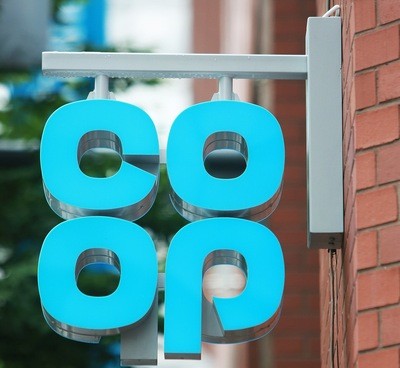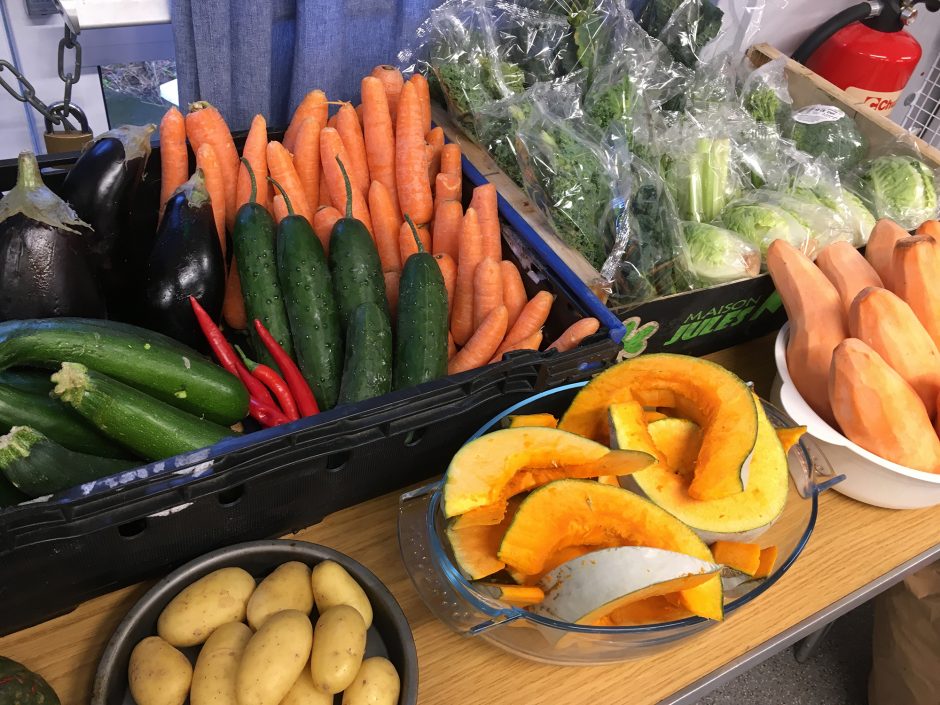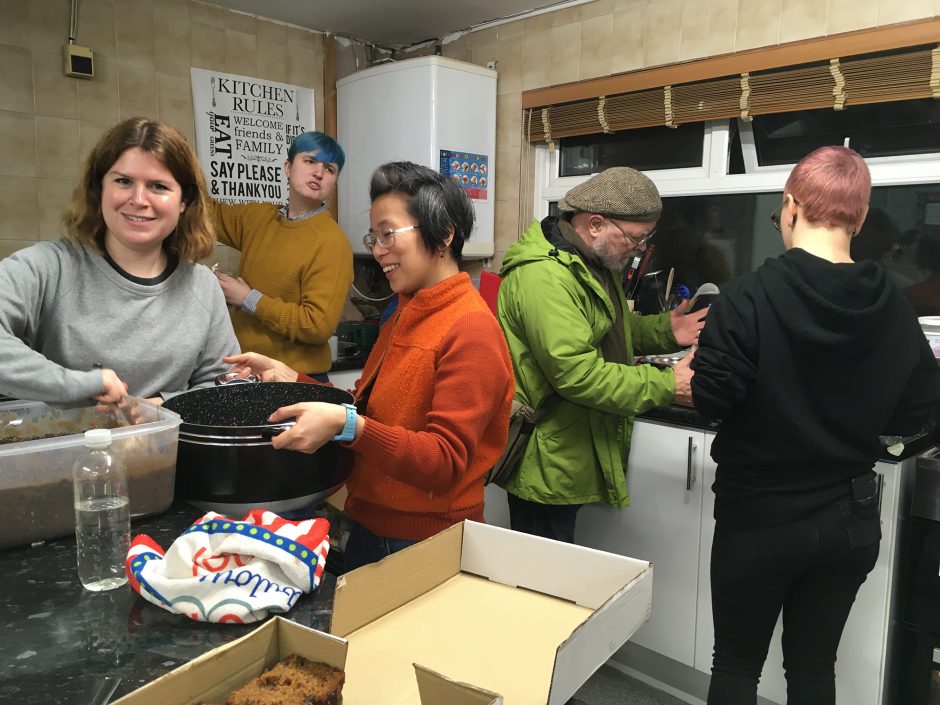Co-op retailers are operating in a fast-changing and competitive environment, with constant shifts in consumer demand creating pressure to keep pace.
These pressures come from all directions; consumers are demanding more choice and convenience but at the same time are more ethically aware in their shopping decisions. And there is increased competition in the retail market, with low cost disruptors and a volatile economy putting pressure on the bottom line. Meanwhile, the leading supermarket chains are taking a leaf from the co-op sector’s book with their charity fundraising and community support programmes. Asda, for instance, now runs a network of more than 350 community champions who work with local groups and charities.
This makes it important for co-op retailers to work harder to assert their difference. High-profile examples include the Co-op Group’s network of member pioneers, its modern slavery campaign, its commitments on single use plastic and work developing compostable carrier bags. And there are continued efforts across the retail sector to build the latest energy-efficient technology into stores.
The co-op movement also made a strong commitment to the Fairtrade movement after Sainsbury’s broke away with its own certification.
These efforts continue: last month, the Group’s policy director Paul Gerrard, one of the key players in its modern slavery campaign, attended a roundtable session in Brussels, organised by EuroCoop, the European federation of consumer co-ops, to discuss ways to build ethics into supply chains.
Where the Group has drawn flak, it has responded with campaigning work – for instance, after staff protested that one-on-one shifts in its stores posed a security risk, it launched its Safer Colleagues, Safer Communities campaign. Similar initiatives on crime and anti-social behaviour have been carried out elsewhere in the retail co-op movement.
Related: Anti-slavery scheme goes to heart of what we do, says Paul Gerrard
The demands of a fast-moving retail market has pushed co-ops to form partnerships with other businesses. The most recent to be announced by the Co-op Group is a deal with sushi brand YO! to supply its customers with Japanese food on the go.
The deal runs at the Group’s new store in Moorgate, London, and meets the growing demand for fresh fare. It will see the store stock more than 10 YO! products including vegan sushi, chicken katsu bites and crispy salmon rolls. The store is the third in the Group’s “on the go” format, following launches at Manchester Piccadilly and London’s America Square. It features the retailer’s newest ethical innovations, including a free water refill station and Gro vegan range.

But another growing area of consumer demand – home shopping – has seen the Group form a partnership with gig economy platform Deliveroo on a grocery delivery scheme.
The advantages of partnering with Deliveroo, which has gone through the costly business of developing a workable app and has a ready-made national network, is clear – but it is also one of a number of platform operators to be criticised for their employment practices. This has spurred the rise of the platform co-op movement, extensively covered by this magazine, which creates worker-owned alternatives. This includes CoopCycle, a European federation of bicycle delivery co-ops, some of which were formed by disgruntled Deliveroo riders.
Related: Report from the platform co-op conference in NYC
Dom Sztyber, a spokesman for the the Independent Workers’ Union of Great Britain, (IWGB), who has worked as a Deliveroo rider, said: “There are huge problems with Deliveroo and plenty of news articles highlighting their appalling treatment of riders. We’re very disappointed the Co-op has chosen to partner with them as it seems to be in direct conflict with their values.”
He says IWGB has been challenging Deliveroo over the employment status of its riders; he says they are currently classed as self-employed. IWGB wants riders to be classed as self-employed, dependent contractors who are entitled to holiday pay, the minimum wage and pension contributions.
Changes to Deliveroo’s terms have led to pay cuts, adds Mr Sztyber. “When including costs like vehicle maintenance, insurance, tax and holiday pay, a lot of riders won’t be making minimum wage.”
He also repeats allegations which have been made by riders in the platform co-op movement that Deliveroo’s algorithms, determining delivery times and costs, are “opaque”, and that the company has penalised riders who complain.
Oliver Sylvester-Bradley from Open Co-op, which is working to develop a collaborative economy in the UK and has taken part in platform co-op initiatives, adds: “Co-ops have a duty, under Principle 6, to support other co-ops – we strengthen the movement by working together.
“Working with companies like Deliveroo, that exploit freelance workers by denying their employment rights, is the antithesis of Principle 6.
“Its primary objectives are profits, completely at odds with the co-op ethos. Co-ops should avoid getting into bed with any business that undermines the rights of its workers and should seek to support co-op alternatives instead, and establish these where they do not exist.
“In Barcelona, Madrid, Bordeaux and Berlin, riders have started delivery co-ops after negative experiences of working for Deliveroo, but it is not easy work. The Co-op Group, with its significant resources, is in a unique position to help kick-start a delivery co-op here in the UK.”
Chris Conway, head of digital and e-commerce, at the Group’s Food division, responded: “The way we do business matters and our commitment to co-operative values can be seen in the ongoing work we do to protect endangered spaces, provide outstanding educational opportunities for young people and promote safer communities.
“It is vital to our continuing success that we look at ways to evolve our offering and that our ranges reflect the ever-changing needs of our customers and members.
“We have recently launched our first-ever plant-based range, Gro, and are rapidly expanding the Co-op’s e-commerce proposition so that we can stay ahead in a very competitive retail landscape.”
He adds that the Group often works with trusted external partners who have the expertise and scale to help it achieve its goals.
“In turn, this can drive greater sales, create jobs and help us to deliver our social goals and community-led programmes.”
The Group says it prides itself on treating its colleagues fairly and expects the same of its suppliers and partners.
“Deliveroo is committed to working with us as a preferred partner and we aim to support them and share our knowledge of how we treat our colleagues, and they have also agreed to support our 1% community fund,” it says.
“Deliveroo has confirmed that all its 15,000 self-employed workers in the UK earn on average £12 an hour on its fee per delivery model, which is above the National Living Wage.”
Deliveroo says is “proud to offer flexible work to more than 30,000 self-employed riders”, adding: “Riders who choose to work with Deliveroo tell us that they want the freedom to decide when, where and how often they work with us, balanced with security,” it says, adding that it provides free insurance for riders. “Our riders have a strong voice within the company and our flexible model is based on their direct feedback.”
But the co-op retail sector also faces challenges from other directions. When the vegetarian, vegan, organic and wholefood movements were in their infancy, co-ops were leading the way, with notable success stories such as Yorkshire-based Suma Wholefoods and Manchester’s Unicorn Grocery.
But, just as corporate supermarkets have tried to steal some of the co-op sector’s ethical clothes, the growing popularity of plant-based diets, bolstered by concerns over the global environmental crisis, means they are now growing their presence in a market previously led by niche independents.
Kellie Bubble, from Unicorn, says: “It is wonderful that social and environmental considerations are influencing customer behaviour.

“The fact that people and planet matter more than profit should be headline news. We can hardly complain that values we hold dear are now mainstream but competition will be more challenging and co-ops need to communicate what they give to communities unlike the corporate competition which largely takes.
“Money from worker co-ops stays in the local economy, there are no offshore accounts or distant shareholders. We contribute to the local economic ecosystem in a very positive way. Maybe this is a new message we should focus on – with communications around the local economic contribution of co-ops and paying a Fair Tax to contribute back into the wider economy.”
At Suma, Giles Simon says: “The last few years have been pretty transformational, with a huge increase in the number of people changing their buying habits for ethical reasons. As a vegetarian business founded on principles of sustainability and co-operation, that’s a fantastic thing, and the more it becomes mainstream the better.”
Mr Simon adds: “As retailers come to offer more plant-based ranges, that’s a real boost too. The Co-op’s new range of fresh vegan food, Gro, for example, makes Co-op stores a destination for people wanting meat free meals, so they can go in-store and get their Suma vegan range on one aisle and their fresh produce on another.

“Because we’ve been supplying ethical products for over 40 years, we know the market well, as well as which new products are coming through. And we’ve got a strong reputation, and that goes a long way. We’re a worker co-op with equality and integrity at our core, so we’ve got great relationships with our customers, many of whom are co-ops – food co-ops, wholefood shops and cafes, and co-op retail stores too – and it’s being part of this wider family of organisations trying to do good that makes the difference for us.”
Meanwhile, new areas of ethical business are opening up for co-ops. Concerns over austerity and food poverty have prompted a range of responses from the co-op movement, including support from the retail sector for food banks, commitments by societies such as East of England to cut down on food waste with new initiatives to see food after its best before date, the growth of urban community farms such as the Lambeth GP Food Co-op. And, in an initiative supported by the Co-op Group, the Rochdale Pioneers Musuem is running the Pioneers Pantry, a pop in shop which sell affordable food and other grocery essentials to people living in poverty.
Now, a new grassroots initiative, Cooperation Town, is looking to establish a series of food co-ops on housing estates and community centres across Britain. The initiative was started by political organisers and activists active in areas such as trade unions, renters unions and women’s strikes.
One of the group, Shiri Shalmy, told Co-op News: “We started organising in November; we knew that we had to organise with people where they are, in their communities – and we knew people are struggling with food costs.”

Their idea was to create an alternative to food banks, which “treat people as charity cases”; the scheme will avoid barriers such as checks on benefit status and is community-led, based on self-organisation, education and solidarity using non-hierarchical structures.
“These are co-op principles, they sit very neatly with what we are doing,” says Shiri. “The idea is to move from charity to solidarity, creating an infrastructure for people to organise their own food.”
She adds: “In practical terms, we can access free food through the existing community infrastructure, and it can be hyper local – based on one estate, neighbourhood, at a single church community infrastructure.”
This can be supplemented with other essentials that can’t be sourced for free, such as nappies and toilet paper, which the co-ops will buy jointly in bulk to reduce price. “We will be organising with our neighbours,” says Shiri. “That is the main point. They will be members’ co-ops – not shops, they’re not open to other people; to be in the group you have to pay the subs and pay for the product, and also to put in your time, helping with booking, delivery, packing and unpacking.”
This sharing of work also applies to “collectivised childcare so women are freed up do those jobs”. This is practical and political, she adds: “I want to see men holding the baby.”
The first co-op, in Kentish Town, north London, is being joined by others around the country, in places such as Edinburgh, Liverpool, Birmingham, Bristol, Hackney, Falmouth and Tower Hamlets.
“There’s so much interest,” says Shiri. “We want to see it as a network of autonomous co-ops, each adapted to its area but all support each other.”
She says Cooperation Town fits in with a wider movement of community co-ops, such as Kitty’s Laundrette in Liverpool. “It doesn’t matter if the output is food or something else, like education – people organise together, it’s not about asking for permission.”
A full day workshop for participants looking to start a Cooperation Town co-op takes place on 22 February, organised with Radical Routes. More details on its @CooperationTown Facebook page.